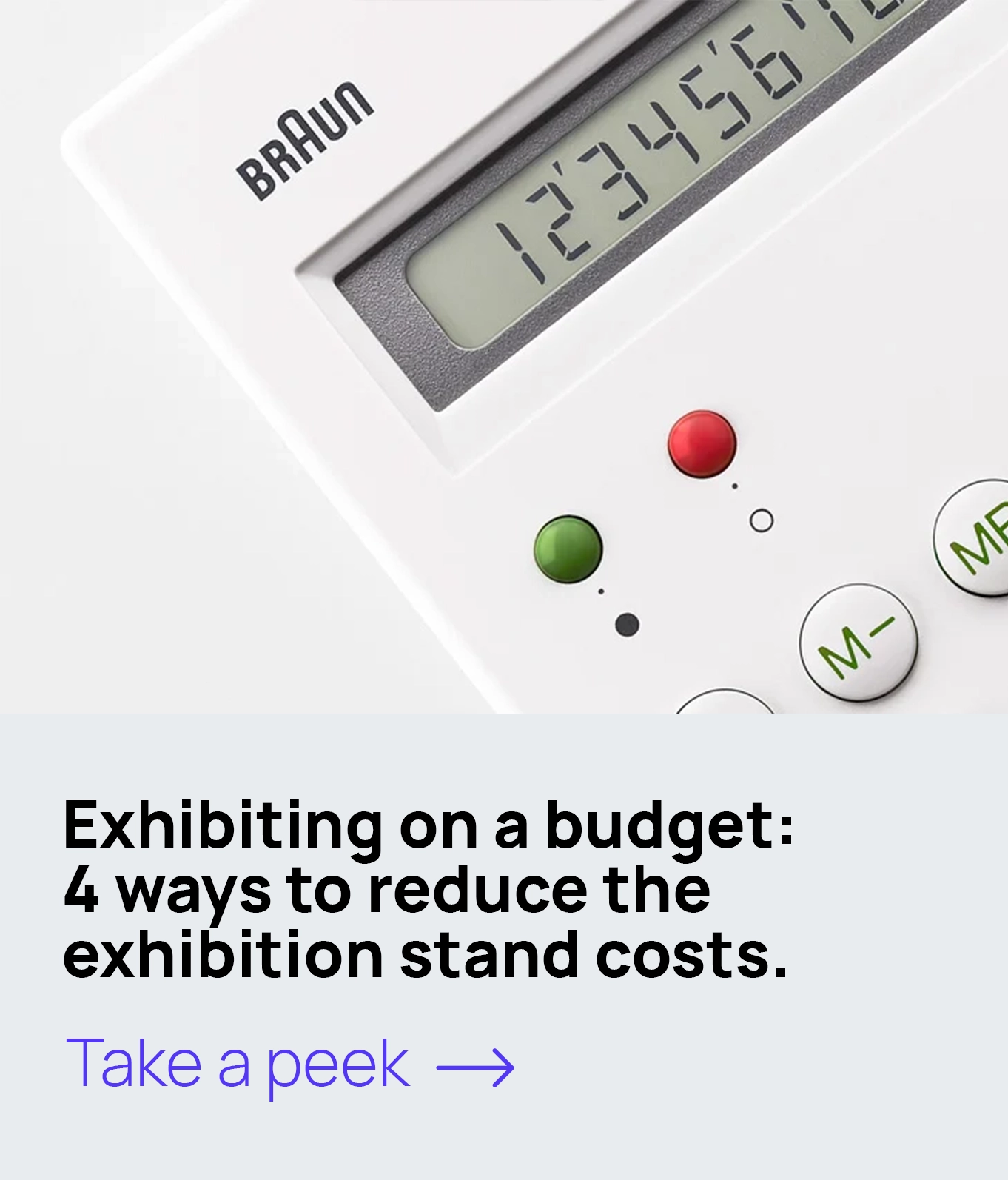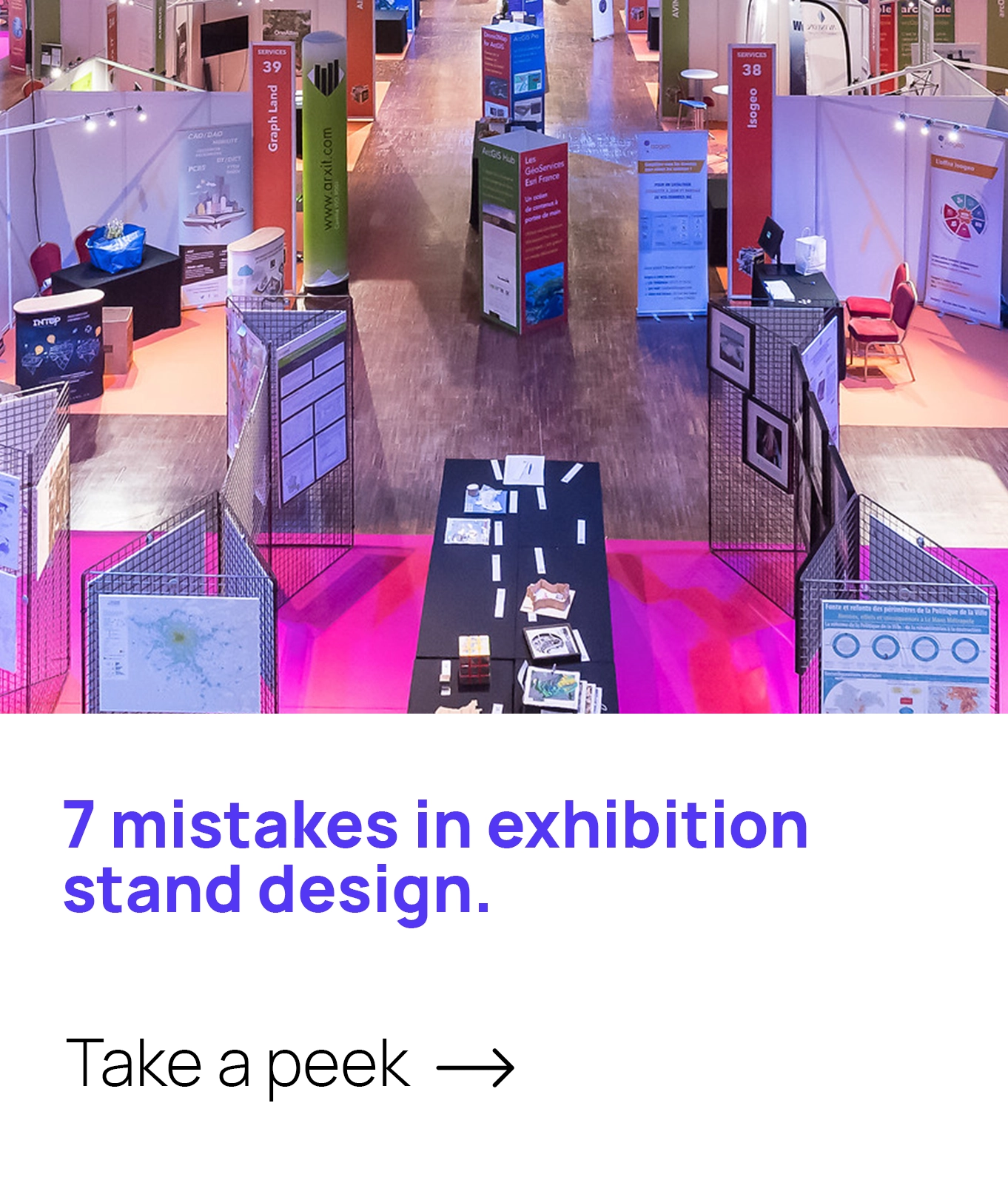How do the prospects get to know about a certain brand they are about to become loyal to? An advertisement on the web, a signage, a business card, a pretty girl in a branded uniform, a leaflet… All of these are touchpoints that should have a set of similar traits to be recognizable. The exhibition stand is one more touchpoint, and it should be treated as such. In the flood of the audial and visual stimuli at the exhibition, the visitors don’t have either time or capabilities to redefine the brand and to add the new elements to the jigsaw puzzle they already have in their heads. So the exhibitor’s company should use the existing elements of this puzzle not to confuse the prospects.
Logos
The company stand design should include a logo. There are plenty of technical possibilities to make it attract all the necessary attention – Besides the logo, companies sometimes develop other distinctive graphic elements – characteristic patterns, personages and so on. It is a good idea to use them in the stand design as well.
If the logo is not used in the stand design, it’s like an ID issued without a photo.
Fonts
There is something magical about the typography – a designer can tell Helvetica from Arial easily, all other people have no idea what bothers these weird artists. However, anyone can say that Lobster won’t work for some funeral service agency while prim Garamond is awful for a kindergarten. The letters do have the temper, and the brand guidelines already have some selection of fonts that tell the story accurately. It’s like the handwriting, stick to it to stay recognizable.
Choosing the font faces different from what are recommended distorts the visitors’ perception.
Colors
Colors matter a lot too. Even the slightly wrong tint can ruin the perception. Remember the Coca-Cola red, the Tiffani blue, the Post-It notes canary yellow? All these iconic colors are inseparable from their brands. Some companies even protect their brand color schemes with a copyright, and that’s worth it because the information about color is 80% of what we perceive from the brand identity.
Using wrong colors can confuse the exhibition visitors, especially if they are already acquainted with the brand.
Values and Mission
It may seem irrelevant to the subject of stand design, but we advise you to have a closer look at the company values. Let’s take an improbable but very demonstrative example. If the company’s social responsibility is somehow connected with preserving the wildlife, it would be an awfully bad idea to use the genuine leather furniture.
If stand design elements contradict with the company values it may make some of the prospects (if they respect and share the same values) turn away.






Leave A Comment